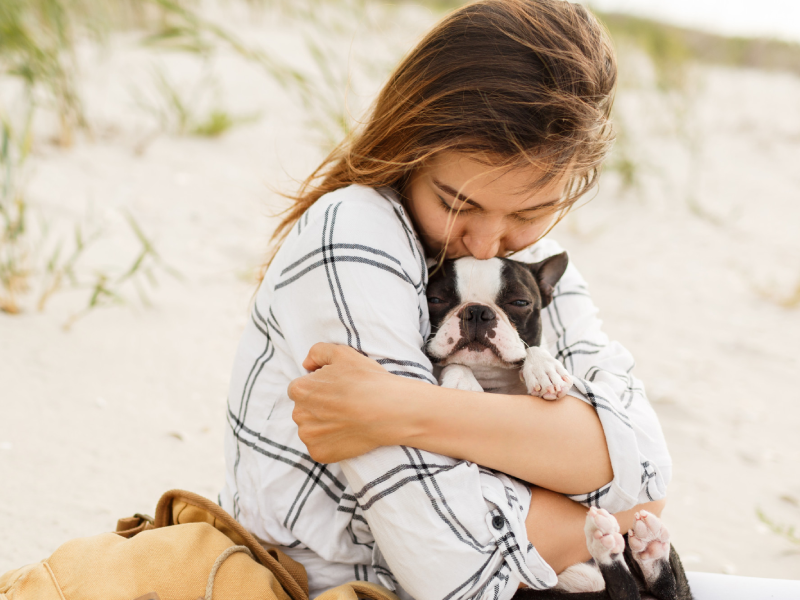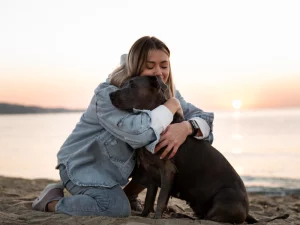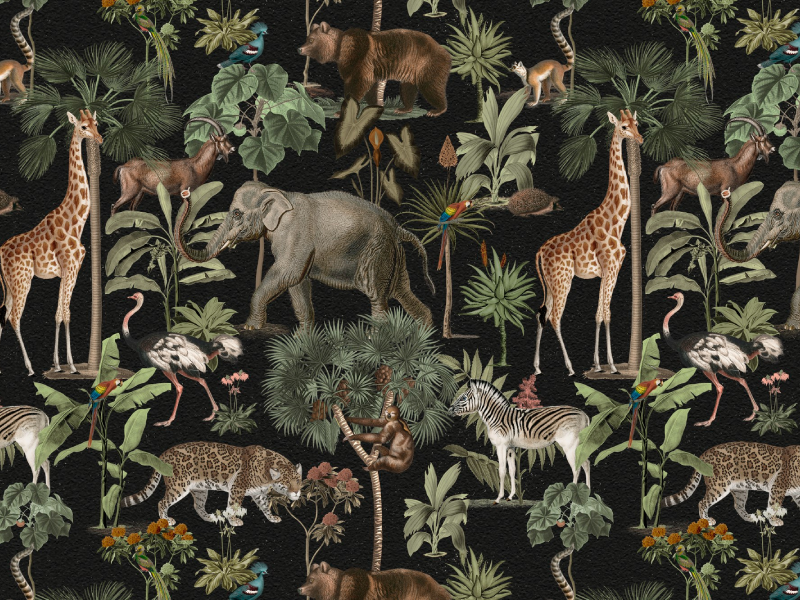Since ancient times, humans and dogs have shared a unique link evident in how dogs interact with us in our daily lives. Most specialists concur that contact between the wolf, the dog’s progenitor, and humans led to the development of this bond. For unknown reasons, some wolves were devoted to this bizarre two-legged animal, and as a result of this early encounter, dogs emerged as we know them today.
There is no denying the vital link that dogs have with humans, and numerous studies have looked into this attachment. Some researchers claim that it has to do with the dog’s cognitive abilities, but others think it has more to do with the dog’s friendliness and sociability than IQ. The term “hyper sociability” has been adopted by some researchers to characterize this characteristic in dogs.
Do dogs love humans unconditionally?
You won’t be surprised to learn that dogs show us this kind of love more than any other type of pet. And unlike most other pets, these attachments have been the focus of numerous academic investigations. Science supports what we already know: most dogs seek to be close to people, and within a few months after birth, a puppy is attracted to people rather than other dogs. When their owners are absent, dogs display varying degrees of separation anxiety. Dogs who receive our strokes have reduced blood pressure readings. It is a type of shared sorrow that we all experience.
Dogs are humans’ best friends.

Several people believe dogs are the only special friends a human can have in the selfish world. Dog ownership might enhance heart health, lessen depression, and even lengthen life. The most substantial protective impact was on those who grew up with dogs. However, cats did not exhibit a close association between ownership and a lower risk of mental illnesses. This symbiotic relationship has been advantageous for both people and our canine pets. Furthermore, the relationship dates back at least 15,000 years.
Establishing connections with dogs
There is no other bond like it, as anyone who has owned a dog or lived closely with one would attest. The relationships we have with our canine friends are priceless because they serve as a combination of caregiving, companionship, and confidence. In addition, there are several things we may do to strengthen our connection even further. Enjoying activities together, especially those your dog has positive associations with, such as going on walks or hikes or taking a ride in the vehicle, is the simplest method to develop a closer bond with your dog (if they like it).
An ancient belief of the origin of the ‘special relationship’:

The human-dog connection was established when ancient wolves found they could scavenge the leftovers from human kills for more reward and significantly less danger than hunting themselves. They were taken into our service as their children grew more reliant on human benefactors through the years.
A DNA mutation in wolves that affects sociability is likely the source of a dog’s affection for humans. In the most straightforward words, some of the wolves were friendlier and more “yes, people” than others when our ancestors first saw the ancestors of our present canines. The ones we kept as pets were those. They are either slaughtered or released in the wild, their more “growl, humans” related kin. The wolves that said “yes, humans” probably had a DNA mutation that made them nicer than usual. We produced pugs by reproducing just the mutant wolves for many years.
Emotional attachment of dogs to humans
Although a dog’s emotional experience is not as complicated as a human’s, numerous studies have demonstrated that dogs can love and develop strong emotional bonds.
Researchers could study their brains by capturing magnetic resonance imaging scans of dogs while subjecting them to various fragrances. Similar to how a human’s brain lights up when viewing an image of a loved one, a dog’s reward center lights up when it detects the scent of someone they know. It is significant to notice that dogs responded more strongly to a familiar person’s scent than to other pleasant scents, such as their canine pals.
Sound has been used in comparative trials, and the outcomes were consistent. Scientists have also studied the chemistry of a dog’s brain. The hormone typically linked to the emotion of love is oxytocin. The findings suggest that oxytocin is created in the brains of dogs and humans during human contact with their young.
Do dogs love humans for getting food?

It is well known that food is a powerful motivator for dogs. Treats are a fantastic option to consider when developing a relationship with your dog because they are such an efficient training tool. Still, there is much more to your relationship with your dog than him using you as a food source. The dog won’t desert you and follow your companion home at the end of the day if you let a friend reward him, after all.
Other methods you should employ in addition to food when attempting to make your dog love you because relationships take time to form. Please spend some time learning to understand your dog and make sure he has a secure area to rest and be alone, such as a kennel or bed in a peaceful area.
After that, make sure your encounters are enjoyable and positive. If your dog enjoys playing fetch, set aside some time to play in the park or your backyard. Whenever you can, go to a park with a lake so he can enjoy the water if he loves to swim. Utilize positive reinforcement and spend a lot of time with your dog when training him.
Gestures of dogs
You can search for a variety of behaviors or gestures of dogs that will make you understand that they love you or care about you. Even a simple tail wag when you enter the house might be a way for dogs to show their love for you. They might stay with you by going from room to room with you and sleeping in the same place you do. A loving glance is another unmistakable indication of love. Your dog’s comfort and loyal glance toward you signify love.
Conclusion:
Although it is pretty clearly determined that dogs love humans unconditionally and there is no doubt that they are capable of having a profound affection for us, petting, praising, exercising, and engaging in any activity that makes your dog happy are all excellent methods to strengthen your relationship with your pet.









